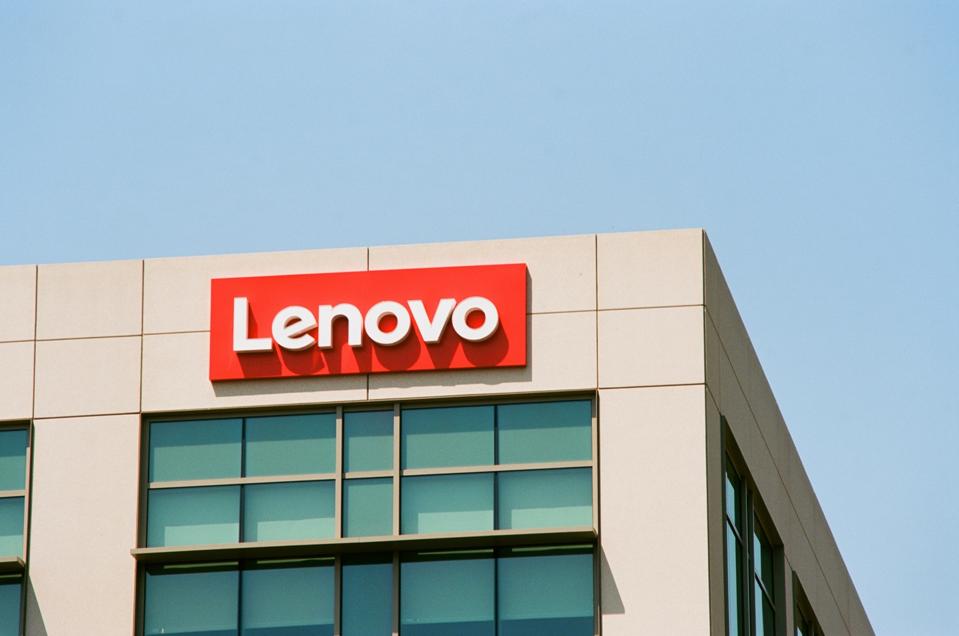In a surprise move, Lenovo has announced its intention to acquire Infinidat, a privately held enterprise storage company specializing in scalable, high-performance, and cyber-resilient storage solutions.
Financial terms of the transaction have not been disclosed. This acquisition marks Lenovo’s strategic entry into the high-end enterprise storage market, complementing its existing portfolio, which primarily focuses on entry and mid-range storage solutions.
The deal is expected to close sometime in 2H calendar 2025.
The Deal
The acquisition of Infinidat promises to strengthen Lenovo’s capabilities across several dimensions of its enterprise storage business. The deal will impact multiple areas of Lenovo’s business, from its storage portfolio to its hybrid-cloud strategy.
Portfolio Expansion
Lenovo’s current storage offerings include ThinkSystem DG (all-flash arrays), DM (hybrid arrays), and DE SAN arrays, primarily OEM’d from NetApp. These products have allowed Lenovo to establish leadership in entry- and mid-tier price bands (<$6,000 to $99,999). However, the company has had limited penetration in higher price bands and mission-critical enterprise workloads.
Infinidat’s portfolio, which includes the InfiniBox hybrid storage array, InfiniBox SSA (all-flash), and InfiniGuard (data protection), is purpose-built for high-end enterprise applications. These systems handle:
- Petabyte-scale workloads
- Cyber-resilient architectures with guaranteed service levels (SLA)
- High throughput and low latency, leveraging memory-based data caching to match or exceed the performance of all-flash arrays
Integration of R&D Capabilities
Infinidat’s R&D teams will integrate with Lenovo’s Infrastructure Solutions Group. This will bring expertise in enterprise storage software innovation, particularly in areas where Infinidat excels, like AI-driven data management and cyber-resilience.
Lenovo’s combined R&D efforts will focus on advancing solutions for hybrid multi-cloud environments, hyperconverged infrastructure, and software-defined storage.
Alignment with Hybrid Cloud Strategy
Both Lenovo and Infinidat have made investments in hybrid cloud technologies. Lenovo’s TruScale infrastructure-as-a-service platform provides consumption-based offerings for enterprise storage. Infinidat’s architecture, which supports on-premises and hybrid multi-cloud deployments, aligns well with this strategy.
This acquisition will allow Lenovo to address broader customer needs, from small-scale implementations to mission-critical, petabyte-scale environments.
Background: Who is Infinidat?
Infinidat is a private data storage company founded in 2011 by storage industry veteran Moshe Yanai. Its headquarters are in Herzliya, Israel, and its U.S. headquarters are in Waltham, Massachusetts.
Infinidat offers a range of enterprise storage solutions designed to balance performance, availability, and cost at multi-petabyte scale:
- InfiniBox: A primary storage platform that delivers high performance and 100% availability for mixed application workloads.
- InfiniBox SSA: An all-flash storage system engineered for ultra-low latency and consistent high performance, suitable for mission-critical applications.
- InfiniGuard: A data protection appliance offering rapid backup and recovery capabilities, integrated with cyber resilience features to safeguard against threats like ransomware.
Infinidat’s solutions leverage a unique software-defined storage architecture, InfuzeOS, which integrates machine learning algorithms to optimize data placement and access. This approach enables the systems to provide high throughput and low latency, achieving performance levels comparable to or exceeding traditional all-flash arrays.
Background: Lenovo & NetApp
Lenovo and NetApp have maintained a strategic partnership since September 2018 to accelerate digital transformation for their customers. This collaboration encompasses several key initiatives:
- Co-Developed Storage Solutions
The partnership led to developing Lenovo-branded storage products that integrate NetApp’s all-flash data management technology with Lenovo’s ThinkSystem infrastructure. The ThinkSystem DM-Series utilizes NetApp’s ONTAP software, while the DE-Series employs NetApp’s SANtricity OS.
- Joint Venture in China
Lenovo and NetApp established a joint venture in China to deliver localized storage solutions tailored to the world’s fastest-growing data market. This initiative combines Lenovo’s market presence with NetApp’s storage expertise to effectively address regional demands.
- Converged Infrastructure for AI
In May 2024, the companies introduced the NetApp AIPod integrated with Lenovo ThinkSystem servers optimized for generative AI workloads. This solution simplifies the deployment and management of AI models, making advanced AI capabilities more accessible to enterprises.
Analysis
Acquiring Infinidat will position Lenovo as a more competitive player in the enterprise storage market, extending the company into high-end segments already well served by its compute business.
Integrating Infinidat’s technology into its business gives Lenovo:
- A stronger portfolio to compete against incumbents such as Dell Technologies, IBM, and Hitachi Vantara
- Enhanced credibility in mission-critical enterprise storage, a segment previously underserved by Lenovo’s portfolio
The addition of Infinidat’s petabyte-scale and cyber-resilient solutions will enable Lenovo to address demand from customers requiring high performance, availability, and scalability for AI, analytics, and data-intensive workloads.
The wild card is the potential impact the acquisition may have on its strategic relationship with NetApp. Infinidat’s offerings in high-end storage may overlap with NetApp’s technologies currently integrated into Lenovo’s products, potentially leading to portfolio realignment.
Additionally, Lenovo’s acquisition places a strategic emphasis on its owning proprietary high-end storage solutions, which could influence the dynamics of its collaboration with NetApp, where the two companies don’t currently compete and where NetApp doesn’t share products with Lenovo. It’s too early to gauge NetApp’s reaction to the news.
While the acquisition creates opportunities for growth and differentiation, it will require careful integration of Infinidat’s portfolio and R&D efforts into Lenovo’s broader infrastructure solutions business. The two companies have very different cultures, with the deal’s ultimate success gated by Lenovo’s ability to manage those differences while navigating its existing partnerships and executing a cohesive strategy for high-end enterprise storage.
Leveraging Infinidat’s technology and expertise to capture market share in high-end storage will undoubtedly expand Lenovo’s presence in enterprise data centers. This will diversify Lenovo’s revenue streams with an extended reach, solidifying its position as a global infrastructure solutions provider.
Beyond giving Lenovo access to the high-end storage market, the deal also brings longer-term benefits to the company by significantly increasing the reach of its in-house engineering teams. While Lenovo has a capable software engineering organization, its reliance on NetApp for core enterprise storage expertise limits its flexibility to innovate in enterprise storage. Leveraging Infinidat’s expertise in this space opens the door to a more dynamic enterprise storage business. This aspect shouldn’t be ignored.
If executed well, the acquisition promises to change the dynamics and intensify competition across the high-end enterprise storage market, particularly for incumbents with legacy storage architectures. Lenovo is an aggressive competitor and will bring that aggressiveness to high-end enterprise storage.


